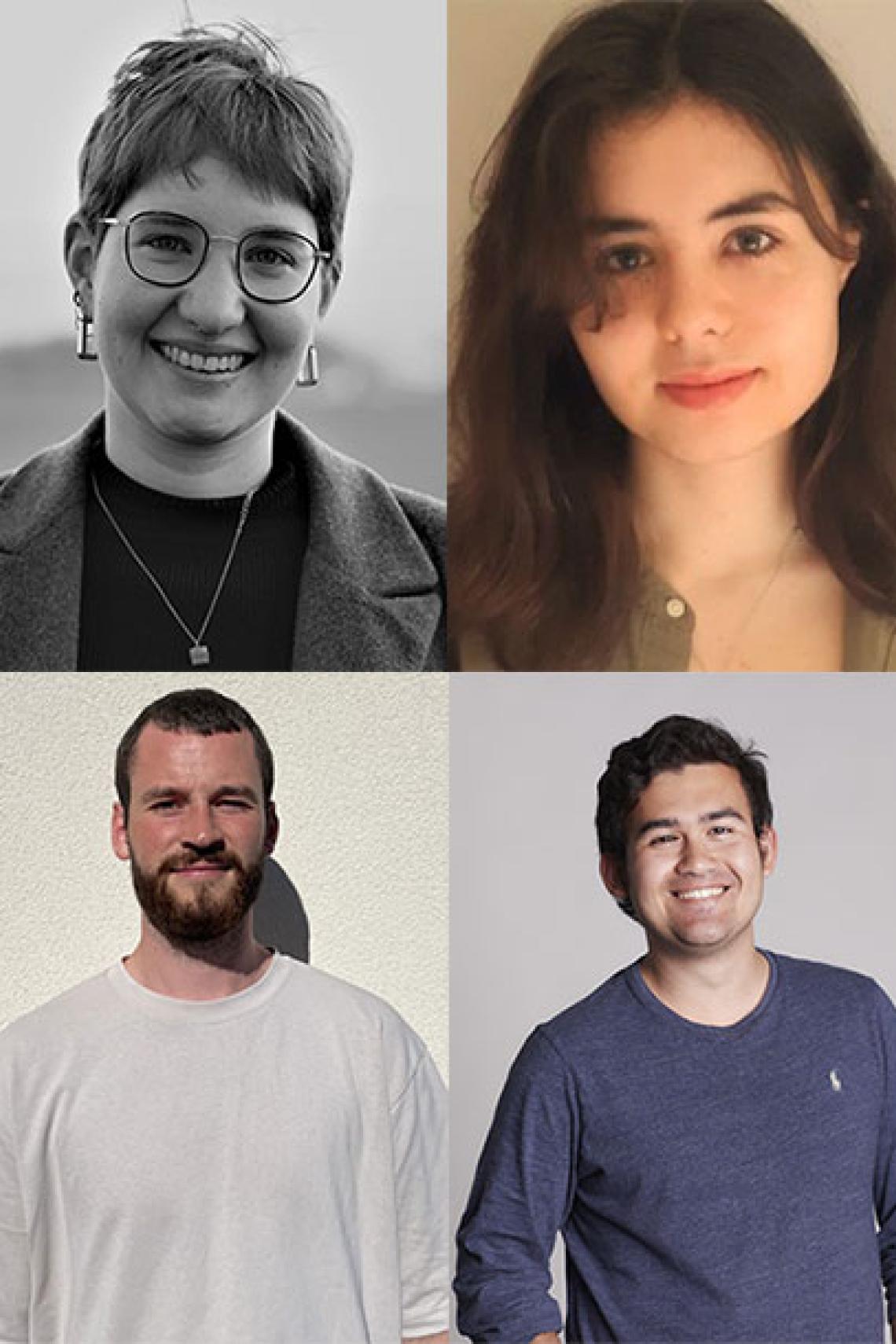Josefina Lehnen, Sive Gaudy, Angus Williams and Adam Sparkes win 2024 MPhil prizes
Congratulations to Josefina Lehnen, Sive Gaudy, Angus Williams and Adam Sparkes who have won the 2024 prizes for their performance in the MPhil in Development Studies.
Josefina Lehnen of St Antony’s College won the Eugene Havas Memorial Prize, the prize for the best overall performance.
Josefina's thesis examined the competing visions of a green state between state actors and local communities in the context of a popular consultation against mining in Quito, Ecuador. The rise of Green New Deals and net-zero policies suggests the emergence of green states as ecological stewards. However, current proposals focused on decarbonisation require an increased amount of minerals, leading to the emergence of green extractivism.
Josefina's thesis examined how this global pressure for decarbonisation is appropriated by the mining industry and subsequently by Ecuadorian state officials to justify the expansion of mining. It also illustrated forms of greening the state beyond decarbonisation such as alternative lifeworlds and ecological democracy promoted by social movements. Based on document analysis, participant observation, and interviews with state actors, activists of the campaign ‘Quito without Mining’, and researchers, her thesis outlines an emerging dispute between a ‘Green Extractivist State’ and ‘Transformative Green State’ in Ecuador.
After graduation, Josefina will join the German Development Cooperation (GIZ) to support the formation of multi-stakeholder partnerships to work towards the SDGs. She looks forward to bringing these practical experiences into the DPhil project on just transitions that she is currently developing.
Sive Gaudy of St Catherine’s College won the Papiya Ghosh Thesis Prize.
Sive researched a new emergency transportation system in Lesotho, called M-Mama. M-Mama is a digital platform which leverages Vodafone’s widespread telecommunication infrastructure to connect regular ‘taxis’ with patients who experience obstetric complications. By mobilising these networks, Vodafone Foundation deploys a spatially dispersed and phone-equipped fleet of on-call drivers to address the ambulance transportation ‘gap’ left by the state. In the thesis, Sive explored how M-Mama’s representation in the media, and the technologist narratives that its marketing draws from, overlook the role that labour transformation processes play on the ground.
Sive is currently seeking opportunities in the development sector, with a specific focus on the intersection of digital technologies, inclusion, and labour rights. In August of 2024, she will be volunteering at the ‘Agir Pour Le Vivant’ festival, an event dedicated to promoting sustainable pathways for current and future generations.
The Examiners prize was shared between Angus Williams of St Edmund Hall and Adam Sparkes of Pembroke College.
Angus’ thesis looked at the mobilisation of La Asociación de Mujeres de lndependencias (AMI) – a women’s grassroots organisation from Medellín, Colombia – to inform how transformative gender justice might be achieved in the context of past and continuing multi-sided gendered violence. AMI’s mobilisation for various forms of justice is driven by a shared commitment to the principles of sororidad (sisterhood). Constituted by a structural understanding of gender inequality and injustice, a commitment to solidarity, and underpinned by feminist ethics of care, sororidad structures AMI’s work to empower women, not only to overcome trauma, but also to transform conditions which lead to conflict and violence in the first instance. The thesis argued that the political, practical and ethical orientations of sororidad might be able to guide the field of transformative justice towards more effective and meaningful justice processes and outcomes, particularly those with a gender focus.
Angus’ short-term plans involve going to Kenya to work on a rose farm and various community projects. Looking ahead, he is determined to work in development in Latin America.
Adam’s thesis explored the diverse responses toward Indonesia’s 2016 Tax Amnesty programme to better understand how stakeholders conceptualise their relationship with the state and one another through their taxes – an arrangement frequently termed the ‘fiscal social contract.’
Through qualitative interviews conducted in Jakarta with legislators, tax administration officers, workers’ unions, and local businesses, his thesis maps out a spectrum of reactions to the 2016 Amnesty and the underlying divergence in how each stakeholder group holds different expectations of the fiscal social contract. Whereas workers’ unions may perceive the 2016 Amnesty as a violation of the fiscal social contract by granting tax relief only to a privileged elite, legislators and bureaucrats instead understood the programme as the sole means of financially securing the state’s reciprocal obligation to its citizens. Recognising and understanding how these simultaneous and diverse conceptualisations of the fiscal social contract relate to one another is thus argued to be an essential aspect of domestic revenue mobilisation efforts.
Adam is joining the international development firm DAI in their London offices. He looks forward to drawing on his fieldwork experience to specialise in public financial management as he begins his professional career.

